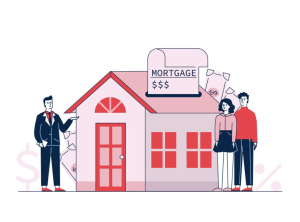The latest data from the Office for National Statistics (ONS) reveals that average private rent costs rose by 8.6% in the 12 months leading to June 2024. While this marks a slight decrease from the 8.7% rise observed in the 12 months to May 2024, it still represents a significant burden for renters across the UK.
Regional Breakdown of Rental Increases
Across the UK, the impact of rising rents has been felt differently. In England, average rents increased by 8.6%, bringing the average cost to £1,310. In Wales, the average rent saw an 8.2% rise, reaching £743, while in Scotland, rents increased by 8.4% to an average of £959. Northern Ireland experienced the highest increase, with average rents rising by 10.3% in the 12 months to April 2024.
The Strain on Renters
Lauren Peel, Director of Consumer Insights at Fair4All Finance, highlighted the ongoing challenges renters face, stating, “There is precious little comfort for renters in today’s 2% inflation figure when private rents are still rising more than four times faster, after almost three years of ever-increasing rental hikes.”
Peel further explained that a significant portion of the population, nearly one in three (30%) of the 20.3 million adults living in financially vulnerable circumstances, rely on the private rental sector for housing. These individuals are particularly strained by the rising costs, pushing their finances to the brink.
Financial Vulnerability and Borrowing
The escalating housing costs are driving many to take on additional debt. Peel noted, “Rising housing costs are creating such a strain that, beyond paying off debt or unexpected expenses, covering rental or mortgage payments has become the most common reason why people look at taking out personal loans.”
This trend is alarming as it indicates that people are borrowing not for luxury or unforeseen emergencies, but simply to maintain their housing. This unsustainable situation has led to nearly one in three (32%) adults in financially vulnerable circumstances expressing concerns about meeting rent or mortgage payments, with expectations of further increases as the year progresses.
Calls for Support and Reforms
Both Peel and Matt Hartley, Director of Engagement at the Money Advice Trust, emphasize the urgent need for governmental and industry action. Hartley supports the Government’s prioritization of the Renters Rights Bill, designed to protect renters from unfair evictions. He also calls for enhanced support through Universal Credit to help people afford basic necessities.
Hartley adds, “With 6.8 million people struggling to pay for essentials, we need to see a clear plan to help people afford the basics, including improving support under Universal Credit.” He also points out the pressing need for a Help to Repay scheme to assist those dealing with unmanageable energy debts, as energy arrears have reached record highs.
Rising House Prices
Amidst the rental cost crisis, house prices have also been on the rise. The average UK house price increased by 2.2%, reaching £285,000 in the 12 months to May 2024. This is up from a revised estimate of 1.3% in the previous 12 months. In England, the average house price rose to £302,000, in Wales to £216,000, and in Scotland to £191,000.
Conclusion
The continuous rise in rental and housing costs highlights the pressing need for comprehensive policy interventions and support systems to safeguard the financial wellbeing of renters and homeowners alike. As the government and industry stakeholders work towards rebalancing the housing market, renters are urged to seek help from local credit unions or community development finance institutions to avoid falling into the trap of unregulated or illegal lenders.






